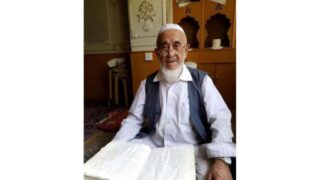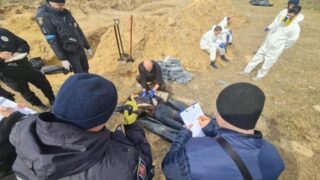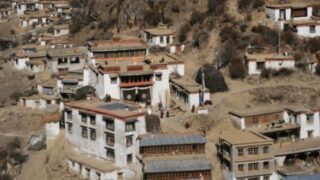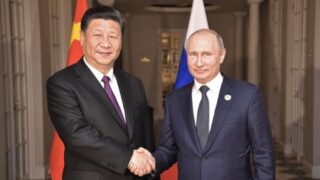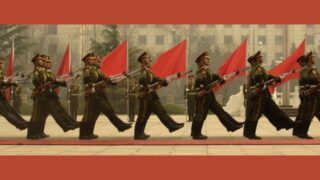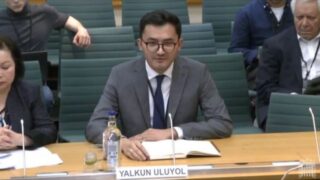An interesting controversy between Tibetologist Robert Barnett and Tibetan (and international) human rights activists.
by Massimo Introvigne


Professor Robert Barnett of the London’s School of Oriental and African Studies and King’s College is one of the most eminent living Tibetologists (we know from correspondence with him that he also reads Bitter Winter). He published in the “Asia Unbound” blog of the Council of Foreign Relations (CFR) a provocative article where he criticized those who claim that Tibetans are experiencing “similar abuses” to those vested on the Uyghurs and other Turkic Muslim populations in Xinjiang. He mentioned in particular claims advanced by German researcher Adrian Zenz and by politicians and scholars connected with the Tibetan administration in exile, supported by some Western colleagues. Some Tibetan activists took exception to Barnett’s article, and one asked the CFR to publish his rebuttal.
The controversy has been discussed in several international media, and deserves some comments. First, it is important to clarify what Barnett did not say. He did not argue that Adrian Zenz is a partisan or unreliable researcher. On the contrary, Barnett wrote that Zenz “has done well-regarded work on Tibet and Xinjiang in the past. His more recent work has been attacked and abused by Chinese state media and others, including smears about his religious beliefs by a pro-Chinese denialist called Max Blumenthal, demonstrating a particularly ugly form of hypocrisy.”
Barnett did not argue that Tibetans are not abused by the CCP either. He stated that “Chinese policies in Tibet are exceptionally restrictive and repressive,” that “camps were created to hold Tibetans detained without being accused of any crime,” and that “serious abuse,” including “sexual harassment,” happened in “camps created in 2017 to house monks and nuns expelled from a number of monasteries in eastern Tibetan areas, notably Larung Gar.” Other “camps were created temporarily in hotels, schools, or converted army bases to hold Tibetans for purposes such as ‘legal education.’” Barnett also acknowledges the significance of the fact that the current CCP Secretary of Xinjiang formerly held the same position in Tibet.
Where, thus, is the disagreement? Barnett claims that, whatever the horror of the abuses vested on Tibetan nuns, monks, and laypersons, there is such a difference in “scale and degree” with what is happening in Xinjiang that equating the two situations is incorrect. Barnett believes that 6,000 to 7,000 Tibetans have been detained in re-education camps, compared to at least one million Uyghurs and other Muslims in Xinjiang, and that atrocities, while not absent, have been much less widespread than in Xinjiang. Many have been arrested in Tibet for “separatism,” Barnett argues, but only a handful have been executed, while executions in Xinjiang are in the thousands. Barnett also discusses Zenz’s studies about forced labor in Tibet, claiming that, unlike in the same scholar’s valuable research on Xinjiang, much there is speculative. It is possible that the number of Tibetans relocated for labor has been exaggerated by CCP bureaucrats for their own purposes, Barnett says, and to what degree coercion or violence was involved is also unclear.
Barnett’s most controversial claim is that there is no effort at eradicating Tibetan culture, more at controlling, “sinicizing,” and containing it, as proved by the fact that some sectors of this culture flourish, and there is no shortage of publication of religious texts, again a very different situation from Xinjiang.
Barnett argues that the difference between Xinjiang and Tibet has deep cultural roots, pre-dating Communism. Tibetan Buddhism is seen as part of the “Three Teachings” (Confucianism, Taoism, and Buddhism), certainly with peculiarities to be kept under control, but not “foreign” to the Chinese tradition as the Islam prevailing in Xinjiang is supposed to be. Within the CCP there is also a tradition of “gradualism” in “sinicizing” Tibetan culture and society, although this school of thought has not always prevailed, while Islam has been perceived as a “threat,” and Uyghur activism labeled as “terrorism,” particularly after 9/11 (and with an initial acquiescence by the West).
Barnett’s opponents have countered that Tibetan labor is mobilized through “coercion,” even if not through “violence,” and that, no matter how many religious books are printed in Tibet, the first tool of cultural genocide is eradicating a language, and this is what is being gradually done by the CCP with respect to Tibetan. (Indeed, Barnett himself is surprised by the recent parallel attack against Mongolian language in Inner Mongolia, which contradicts a similar CCP tradition of “gradualism” in assimilating Mongolians).
Blog posts are not scholarly articles, and there is always a risk that arguments are overstated. When read carefully, Barnett and his critics appear to agree on several key points. Uyghurs and other Muslims in Xinjiang are persecuted, and Tibetans in Tibet are persecuted. Barnett is probably right in claiming that the horrific numbers and features of the persecution in Xinjiang are without comparison elsewhere. This is precisely why several countries have officially declared what is happening in Xinjiang (but not in Tibet) a genocide.
Like other scholars, Barnett is disturbed by the fact that colleagues like Zenz work hand-in-hand with activist institutions that are not academic and do not use academic language or caution. I am personally interested in this debate, as I made a similar choice. I keep writing scholarly books and articles published by academic presses and journals on Chinese religion (and other subjects), but I also edit a daily magazine and participate in activist efforts defending religious liberty and human rights in China. I do respect the choices of colleagues who believe that they should confine themselves to purely academic endeavors. On the other hand, when I founded Bitter Winter in 2018, I had concluded that what the CCP was doing to all religions, not only in Xinjiang or Tibet, was so atrocious—and had so many features of a genocide—that, knowing something about it, I should speak out, rather than limiting myself to writing academic texts for a small circle of colleagues.



